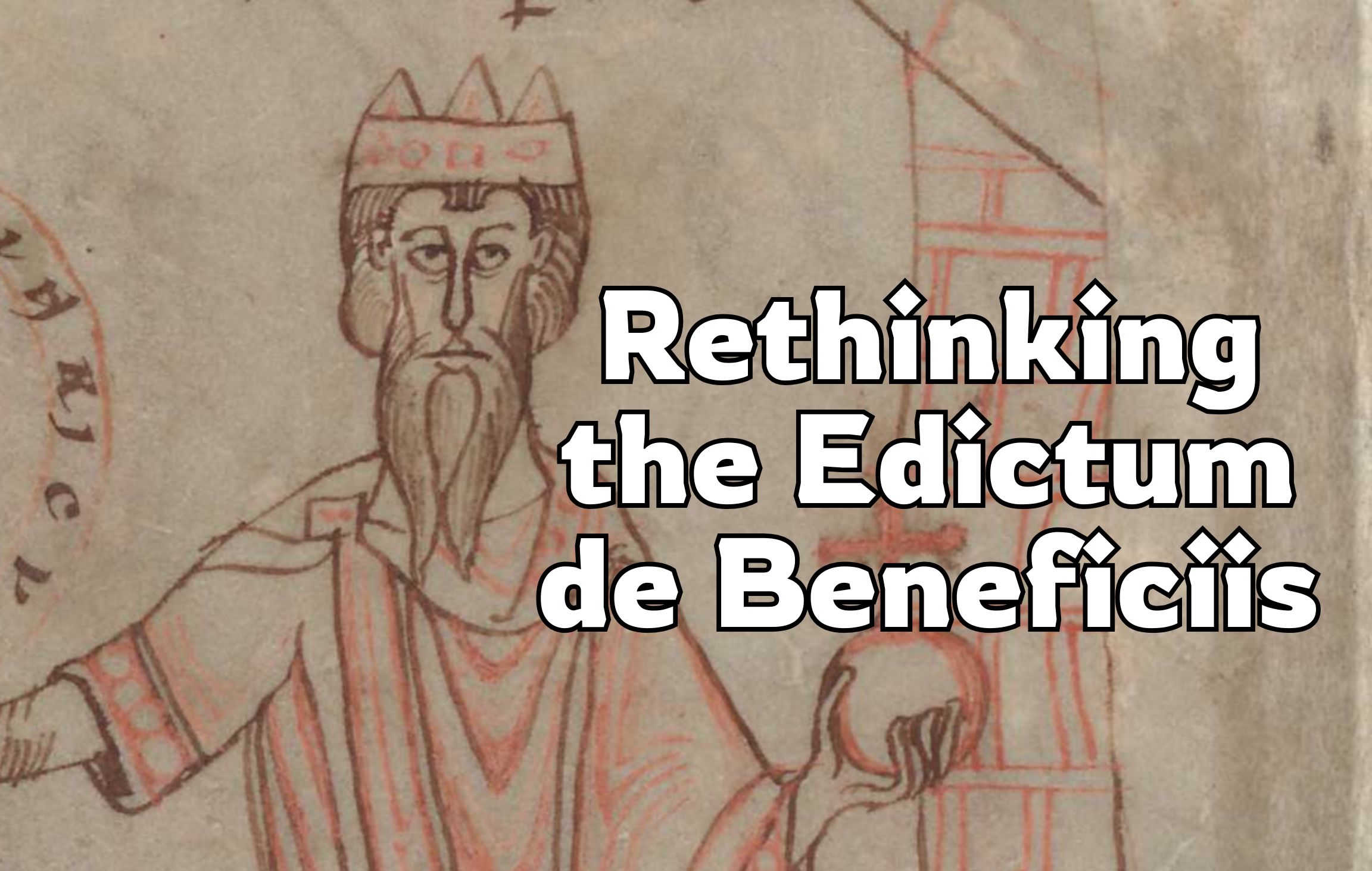
""in order to reconcile the spirits of the seniores and the milites" ... "no miles of a bishop, abbot, abbess, margrave, count, or anyone else who holds a benefice from our public goods or from the assets of a church, shall lose unjustly what he holds up to this point. This goes for both our major vassals and their milites, such that no one will lose his beneficium without a clear and proven guilt.""
"Subsequent clauses lay out the legal forms that had to be followed to strip a miles of his beneficium and also state the expectation that a son would inherit his father's beneficium. In the absence of a son, or a grandson in the male line, then a brother of a miles could inherit the beneficium. Although the text itself is silent on this matter, many scholars have associated Conrad's decision to issue this decree"
Emperor Conrad II issued the Edictum de Beneficiis during the 1037 siege of Milan to define and protect the holdings of milites attached to lords and churches. The edict forbade unjust deprivation of benefices and required clear, proven guilt before removal. It prescribed legal procedures for stripping a miles of his beneficium and established inheritance rules favoring sons, then grandsons in the male line, and then brothers. The decree has been linked to prior unrest among lower-ranking milites who reportedly rose against oppressive superiors, and it altered the balance of land, loyalty, and authority in northern Italy.
Read at Medievalists.net
Unable to calculate read time
Collection
[
|
...
]